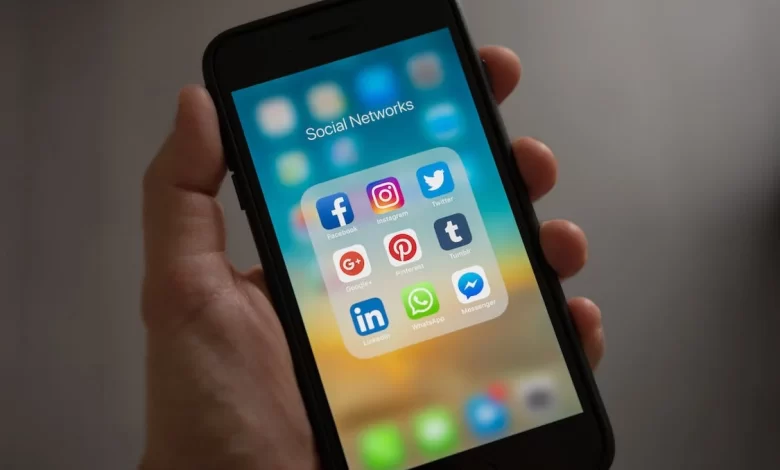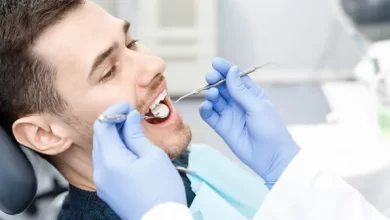The Role of Social Media in Teenage Eating Disorders

In the digital age, social media has emerged as an influential force in the lives of teenagers, shaping their perceptions, values, and behaviors. While these platforms offer connectivity and a wealth of information, they also significantly influence young individuals’ mental and emotional well-being.
One concerning aspect of this impact is the role these platforms play in the prevalence and development of eating disorders among teenagers.
The ideals of beauty and the unattainable standards showcased on social platforms have left an indelible mark on the psyche of young users. The constant exposure to carefully curated images, “fitspiration” trends, and an abundance of dieting advice has, in many cases, led to adverse consequences.
In this article, we will discuss the intricate relationship between social media and teenage eating disorders.
Impact of Social Media on Body Image
These platforms are replete with imagery that often seems unattainable because of the widespread use of photo filters and editing tools. Moreover, social media influencers promote highly curated, often digitally altered images of themselves.
A comprehensive study published in PLOS Global Public Health conducted by Komal Bhatia and Alexandra Dane underscores the far-reaching influence of social media. Analyzing 50 studies from 17 mostly high-income countries, the research reveals that specific online experiences are significantly linked to negative outcomes.
Trends on these platforms and a pervasive emphasis on appearance and photo-centric platforms play a substantial role in shaping body image perceptions among teenagers.
The study also highlights that individuals with preexisting body image concerns may be at heightened risk for developing disordered eating patterns.
Comparison Culture Among Teenagers
The omnipresence of social platforms, especially Instagram, has ushered in an era of pervasive comparison culture among teenagers. The pressure to conform to appearance standards set by peers on these platforms has reached unprecedented levels.
Constantly bombarded with images of seemingly flawless lives and bodies, teenagers often find themselves trapped in a cycle of comparison. This leads to body dissatisfaction and triggers disordered eating habits.
Celebrities, often considered role models, are not immune to these pressures. Actress Elle Fanning, a L’Oréal Paris ambassador, candidly acknowledges the pitfalls of Instagram. Despite her awareness, Fanning confesses to occasionally succumbing to the allure of portraying only the curated, best aspects of her life.
According to Harper’s Bazaar, Fanning powerfully illustrates the distortion that can occur, both physically and mentally, when attempting to conform to society’s beauty standards.
The recent Instagram lawsuit has heightened the issue of the pressure to conform on social media. This legal action indicates that teenagers facing adverse mental health effects due to platforms like Facebook and Instagram might have legal avenues for recourse.
TorHoerman Law notes that this significant development acknowledges the profound impact of social media on the mental health of vulnerable demographics. Instagram, in particular, has been identified as detrimental to mental well-being. It has been linked to issues like diminished self-esteem, heightened anxiety, and the development of eating disorders.
Influence of Diet and Fitness Trends
On platforms like Instagram and TikTok, dieting trends promising rapid weight loss and extreme workout routines are often glorified without expert supervision. Influencers showcasing their toned bodies and restrictive diets can create unrealistic expectations and pressures on impressionable young minds.
Teens, striving for acceptance and influenced by these trends, may adopt extreme diets or workout routines without understanding the potential risks. Rapid, unguided changes in eating habits can lead to nutritional deficiencies and fluctuations in weight that harm physical and mental health.
Similarly, extreme workout practices can result in injuries, exhaustion, and a distorted body image perception. It’s vital to recognize the need for guidance, ensuring teenagers have access to accurate information about balanced nutrition, safe workout routines, and self-acceptance.
Encouraging healthy habits and body positivity while debunking myths surrounding fitness trends is crucial to promoting overall well-being among teenagers.
School and Community Interventions
Schools and communities play a pivotal role in mitigating social media’s adverse effects on teenagers’ body image through proactive interventions. Organizing workshops, seminars, and awareness campaigns within the school environment provides a structured platform for addressing the impact.
These initiatives can include discussions on digital literacy, media literacy, and promoting a healthy online presence.
Additionally, highlighting programs that cultivate self-confidence and healthy self-esteem is crucial. These programs can include activities promoting self-expression, self-acceptance, and emotional resilience.
School districts like the Matawan-Aberdeen Regional School District in Monmouth County have proactively countered the harms of social media. Their legal action, suing major platforms, underscores the gravity of the issue.
NJ.com notes that by holding these platforms accountable, schools are championing the mental health and well-being of their students. This legal initiative, alongside counseling and mental health resources, showcases a holistic approach to tackling the mental health crisis intensified by social media.
Conclusion
In the digital era, the influence of social media on the mental and emotional well-being of teenagers is undeniable. This article has delved into the multifaceted impacts of these platforms on teenage body image and the development of eating disorders.
From the perpetuation of unrealistic beauty standards to the insidious culture of comparison, the pressures exerted by these platforms have far-reaching consequences.
The battle against the detrimental effects of social media on teenage body image requires collective efforts. Parents, educators, and communities must collaborate to create a safer online environment and empower teenagers to embrace their unique identities.
Through these concerted efforts, society can nurture a generation of young individuals who are resilient, confident, and capable of navigating the digital world.




